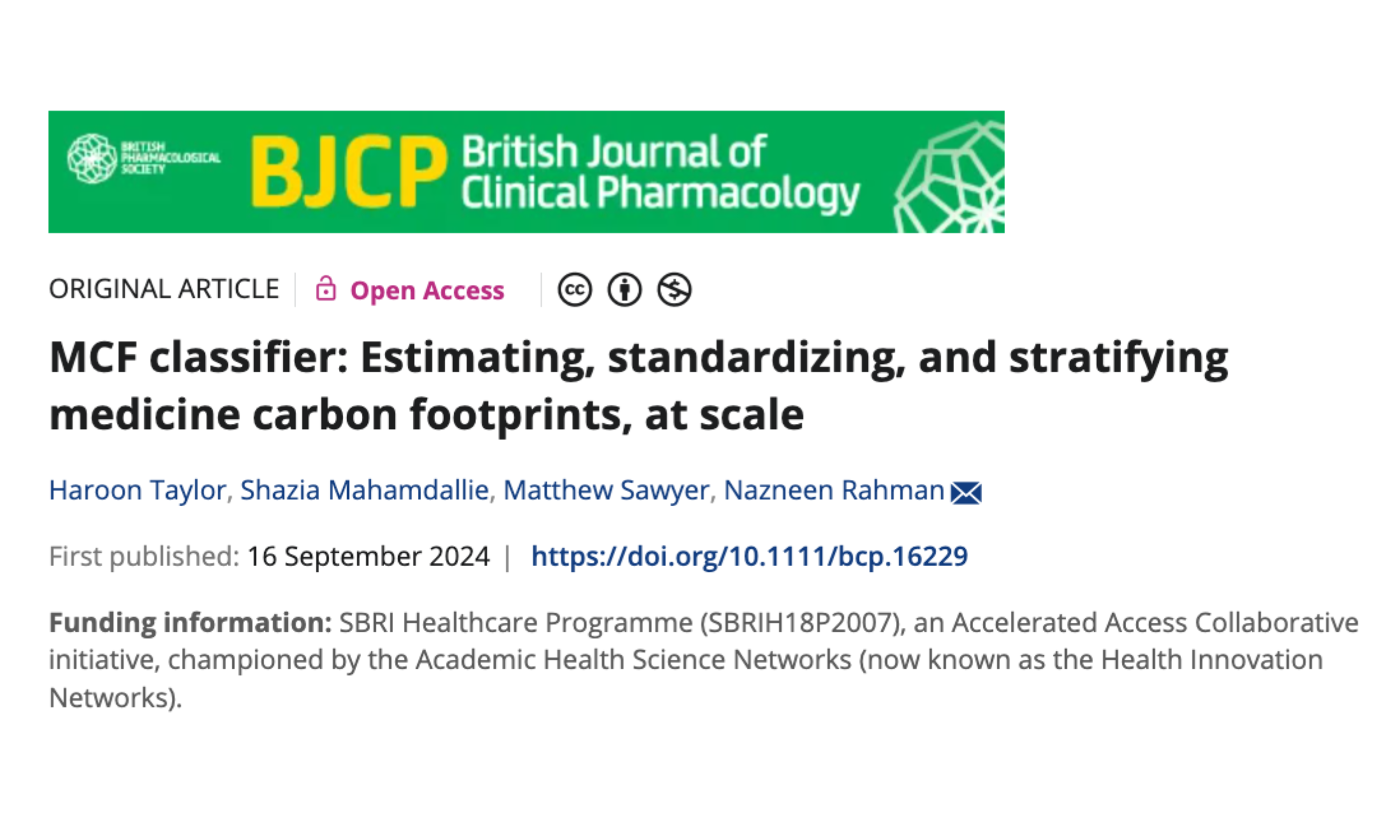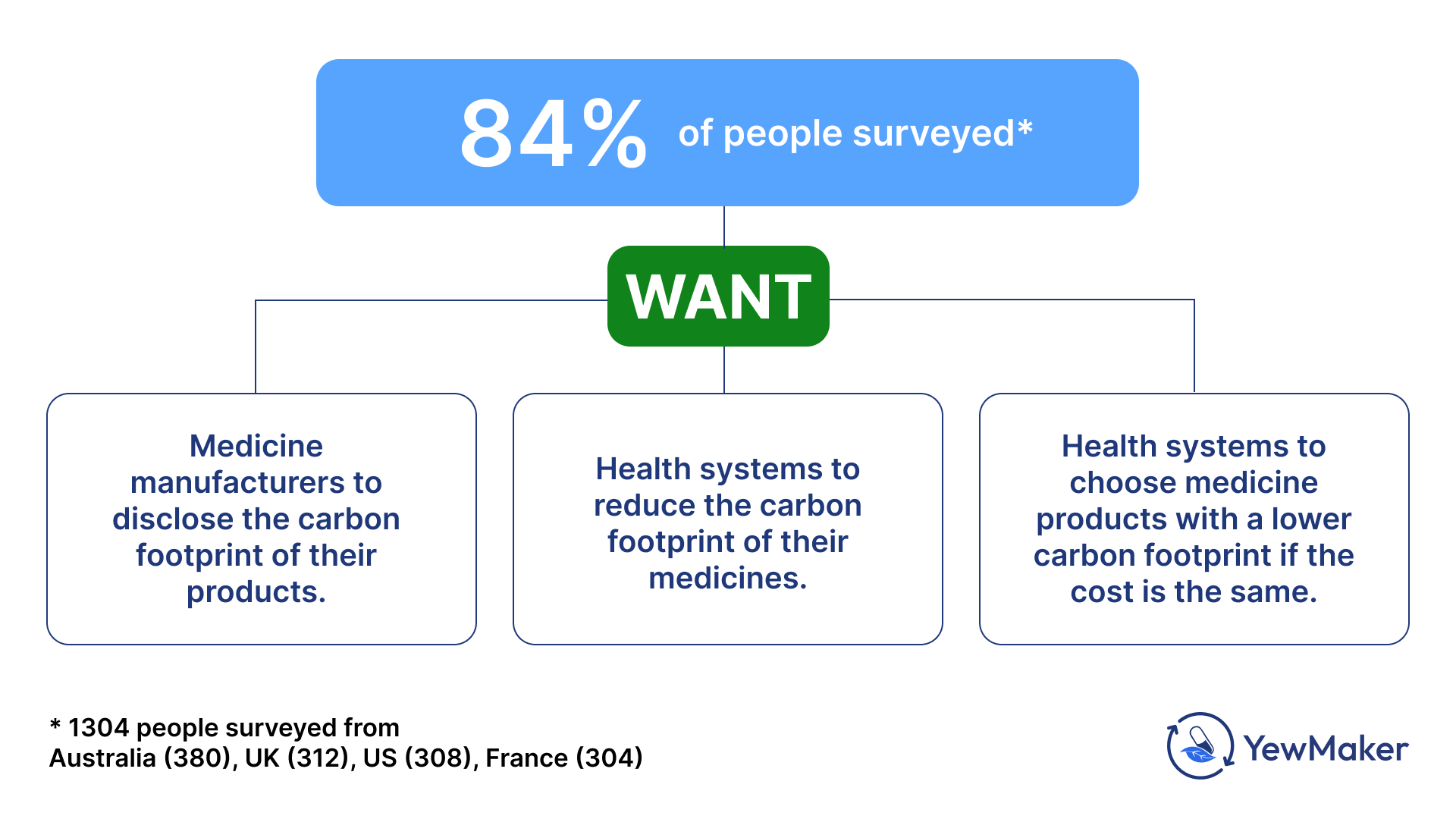MCF CLASSIFIER
What is MCF Classifier?
Medicine Carbon Footprint Classifier delivers fast, affordable, actionable carbon footprint insights for medicines. Our published, peer-reviewed AI-driven methodology turns a simple product list into powerful data—helping organisations to measure, benchmark, report, and improve the carbon impact of their medicines.
MCF Classifier is trusted by leading organisations including pharmaceutical manufacturers, medicine distributors, hospitals and academic researchers.
Why choose MCF Classifier?
The climate crisis is a health crisis and addressing the carbon impact of medicines is an urgent priority because medicines contribute ~25% of healthcare emissions.
Historically, standardised, comparable, product-level medicine emissions data has not been available, blocking progress on emission reductions, cost savings, and market differentiation.
MCF Classifier fills this gap using YewMaker's AI-driven technology and predictive modelling. Our solutions help you to:
Understand your portfolio: Our rapid scan categorises your products by carbon impact, helping you prioritise actions and opportunities.
Meet reporting requirements: Access product-level, compliant carbon footprint data that keeps you aligned with evolving standards.
Differentiate your products: Compare medicine emissions in real-world contexts to strengthen market positioning.
Measure medicine carbon emissions: Let us calculate your emissions with our compliant, peer-reviewed, methodology.
Act quickly and cost-effectively: We deliver actionable insights in weeks at a fraction of conventional costs.
MCF Solutions
For Manufacturers and Supply Chain
MCF Portfolio Scan
Quickly assess the carbon impact of your full product range with an MCF Ratings scan. Identify high-carbon products and low-carbon opportunities at a glance.
MCF Product Report
Get comprehensive, third-party assured, cradle-to-gate carbon footprint reports for (almost) any medicine. Compliant with GHG protocol, PAS 2050, and ISO 14067.
MCF Comparison Report
Compare medicine emissions in real-world contexts with our contextualised, standardised analyses to support benchmarking and market differentiation.
MCF Emission Analyses
Get comprehensive, compliant medicine emissions analyses across our full dataset. Ideal for supporting emissions reporting, supplier engagement, mitigation strategies.
For Practitioners and Researchers
MCF Data Extract
Need the raw numbers? Request the CO2e values for select medicines to empower your research, analyses, and sustainability initiatives.
MCF Formulary
Explore per dose cradle-to-gate carbon footprint ratings for thousands of medicines in our free, interactive, user-friendly platform.
MCF Method: An AI-driven Approach to Medicine Carbon Footprints
At the core of MCF Classifier is the MCF Method, an AI-driven process that uses data science and machine learning to predict the carbon emissions of medicines.
The method is grounded in Process Mass Intensity (PMI), an industry-standard metric strongly correlated with global warming potential.
By integrating empirical and modelled data MCF Classifier generates standardised cradle-to-gate carbon footprints for medicines, compliant with GHG Protocol, PAS and ISO standards.
To learn more about our methods, please read our open access paper.
MCF Formulary: Explore Medicine Carbon Ratings for Free
Alongside our tailored solutions, we have created MCF Formulary—a free, interactive tool that lets you browse and compare per-dose carbon footprint ratings for ~4,000 medicines.
This educational resource gives you a firsthand look at a snapshot of our available data. We hope it will inspire you to consider ways to optimise the carbon emissions of medicines.
“We built MCF Formulary to give everyone free access to our unique MCF Carbon Ratings, empowering you to better understand and act on the carbon emissions of medicines. ”
Public Perception on Medicine Carbon Footprints: Key Insights
To better understand public sentiment on medicine carbon footprints we conducted quantitative and qualitative research.
Our findings highlight the growing demand for transparency and action on medicine-related emissions
“Our research shows most people want more transparency and more action on medicine carbon emissions. MCF Classifier delivers on that need, empowering choices that are better for people, the planet, and business.”




